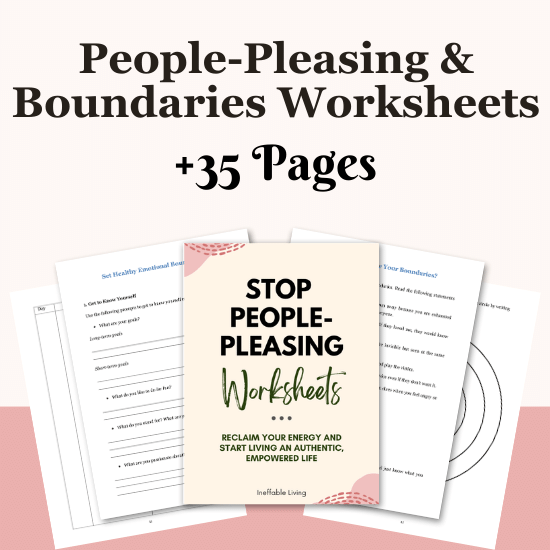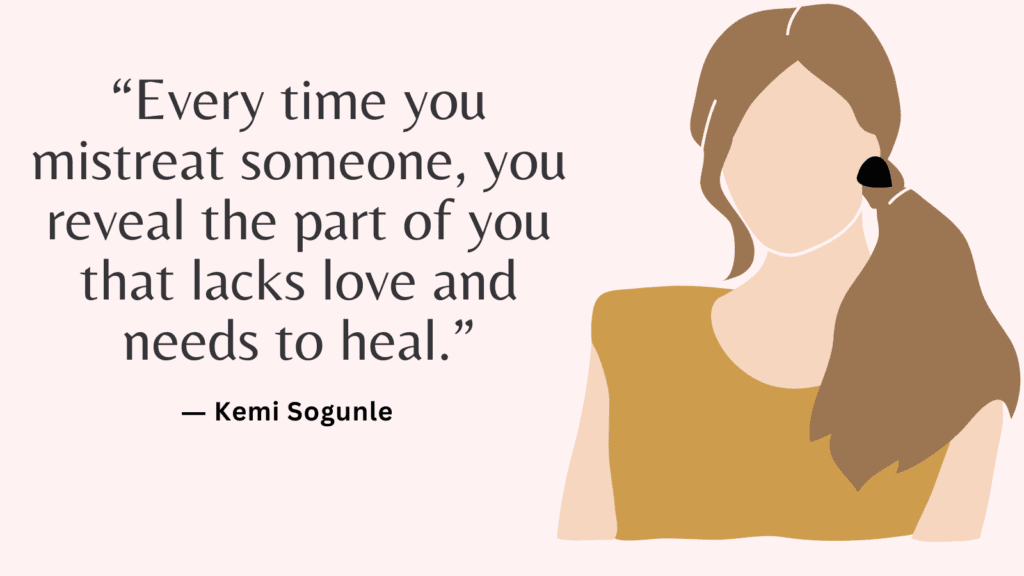Setting boundaries can be empowering—but it often comes with discomfort, especially when others resist the change. People may get upset, guilt-trip you, or try to test your limits. This pushback doesn’t mean you did something wrong—it means the dynamic is shifting. And with the right mindset, you can hold your ground without guilt or escalation. Here’s how to handle pushback with clarity and confidence.
Why Pushback Happens (Even From People Who Love You)?
When you begin setting boundaries, especially if you’ve gone without them for a long time, people may feel unsettled. Even those who care about you might resist the change — not always because they want to hurt you, but because the dynamic they’re used to is shifting.
1. They’re Used to the Old Version of You
If you’ve always been available, generous, or accommodating, your shift feels unfamiliar. People may not know how to respond when you start honoring your limits — even if those limits are healthy and needed.
2. Your Boundary Challenges Their Comfort
Your “no” might highlight where they’ve been over-reliant or inconsiderate. Instead of facing that discomfort, they may react with defensiveness, guilt-tripping, or denial — not out of cruelty, but out of emotional discomfort.
3. They Mistake Boundaries for Rejection
Some people interpret boundaries as a withdrawal of love or loyalty. They may fear losing access to you, and that fear shows up as anger, hurt, or attempts to pull you back into old roles.
Related: Top 25 Tips On How To Set Boundaries Without Being Controlling? (+FREE Worksheets PDF)
4. They’ve Benefited From the Lack of Boundaries
Even unconsciously, others may have gotten used to the advantages of your boundarylessness — your time, money, support, or emotional labor. Setting limits can feel like a loss to them, even if it’s a gain for your health.
5. Change Feels Like Conflict
For people who fear confrontation or associate boundaries with fighting, any assertion of needs can feel threatening. They might push back simply because they don’t know how to navigate healthy disagreement.
How to Handle Pushback When You Set a New Boundary?
1. Expect Discomfort—But Don’t Let It Stop You
Pushback is common when you start asserting needs in relationships that previously lacked boundaries. Remind yourself: “Discomfort is part of change—not a sign I’m doing it wrong.”
2. Stay Calm and Grounded
When someone reacts emotionally, your job is to stay centered. Breathe. Respond with calm, not defensiveness. Say:
“I understand this is hard to hear. I’m still holding this boundary.”
Related: How to Identify and Set Non Negotiable Boundaries?
3. Use the “Broken Record” Technique
If they try to argue, guilt-trip, or change the subject, calmly repeat your boundary. For example:
- “I won’t be lending money right now.”
- “I’m not available for that.”
Staying consistent sends a clear signal: your boundary isn’t up for debate.
4. Resist the Urge to Over-Explain
You don’t need to justify or convince. If you over-explain, it invites negotiation. Keep it short and respectful:
“This is what’s right for me right now.”
5. Validate Their Feelings—But Don’t Abandon Your Boundary
You can acknowledge their emotions without changing your stance:
“I hear that this is frustrating for you. I still need to honor what’s best for me.”
6. Recognize Manipulation Tactics
If they use guilt (“After all I’ve done for you”), blame (“You’ve changed”), or play the victim, notice it without getting pulled in. These tactics often mean your boundary is working.
7. Don’t Let Their Discomfort Become Your Responsibility
It’s not your job to manage their reactions. You’re allowed to disappoint someone if it means taking care of your mental and emotional health.
Related: Top 19 Journal Prompts For Boundaries
8. Take Space if Needed
If pushback becomes intense, step away. Say:
“This conversation isn’t respectful right now. I’ll come back when we can talk calmly.”
Distance protects your peace and gives space for things to settle.
9. Reaffirm Why the Boundary Matters
Quietly remind yourself: “This is about protecting my energy, not punishing them.” Anchoring to your values helps you stay steady in moments of doubt.
10. Remember: Boundaries Strengthen Relationships—They Don’t Ruin Them
Healthy boundaries create clarity, not distance. The people who respect you may need time—but they’ll adjust. The people who don’t may not belong as close.
Related: Top 10 Books About Setting Boundaries

Conclusion
Pushback isn’t failure—it’s resistance to a new standard. Stay kind, stay clear, and trust that you’re allowed to protect your space. Boundaries are an act of self-trust, not rejection. The more you hold them with quiet strength, the more your life begins to reflect the respect you’ve chosen to give yourself.



